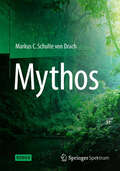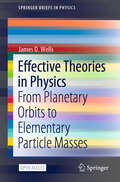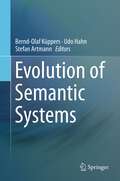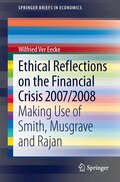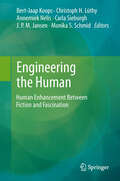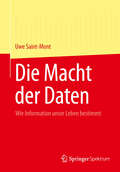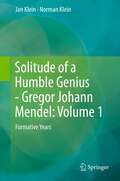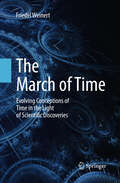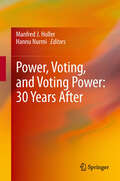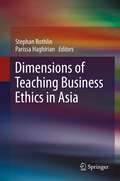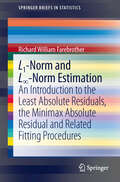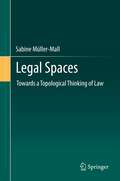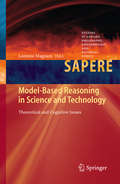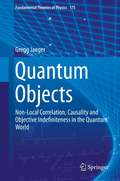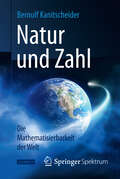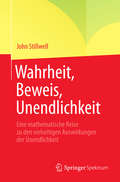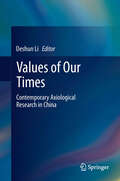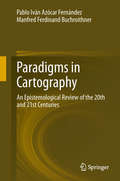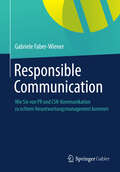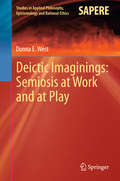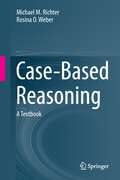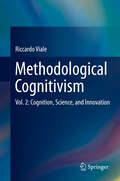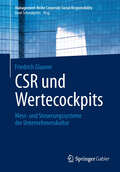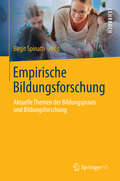- Table View
- List View
Mythos
by Markus C Schulte von DrachEine Expedition ins Herz des Dschungels. Eine Reise an den Anfang und das Ende des Glaubens. Eine abenteuerliche Auseinandersetzung mit der Religion und der Evolution. Im Jahr 1539 begegnet der spanische Konquistador Juan de la Torre im Amazonasdschungel dem Teufel. Als fast 500 Jahre später die deutsche Schriftkundlerin Nora Tilly im Indienarchiv von Sevilla auf Dokumente des Spaniers stößt, entdeckt sie Hinweise auf einen Inka-Schatz. Doch bald muss sie feststellen, dass sie nicht die einzige ist, die sich auf den Weg macht, um das Gold zu finden. Die irische Journalistin Brea MacLoughlin reist mit einer Delegation katholischer Geistlicher ebenfalls nach Peru, um ein angebliches Wunder in den Anden zu überprüfen. Zu dieser Delegation gehört auch der junge Priester Arnaud d'Albret, der in Südamerika über eine ihm verbotene Liebe hinwegzukommen hofft. Nach dem gewaltsamen Tod seines Mentors schließt d'Albret sich Nora Tilly an. Auch Brea MacLoughlin folgt der Expedition der Schatzsucher. Im Dschungel Perus entdeckt unterdessen der Biologiestudent Francisco Pérez etwas, das eigentlich nicht existieren dürfte: das fünfzehn Millionen Jahre alte Fossil eines Riesenkrokodils, in dessen Schädel eine Pfeilspitze steckt. Der Versuch, dieses Rätsel zu lösen, führt ihn schließlich mit den Schatzjägern aus Europa zusammen. Doch was die Expedition im Dschungel erwartet, ist nicht nur das Gold der Inka. Tief im Wald stoßen sie auf etwas, das ihr Weltbild in Stücke reißt. ......... "Eine abenteuerliche Melange aus Dawkins' Gotteswahn, Indiana Jones und Jurassic Park. Schulte von Drach gelingt, was Dan Brown nie schaffte: den Leser zu fesseln, ohne seinen Verstand zu lähmen. Absolut empfehlenswert!" Michael Schmidt-Salomon, Philosoph und Schriftsteller, Vorstandssprecher der Giordano-Bruno-Stiftung, Autor von "Jenseits von Gut und Böse" "Wie viel Menschenwerk steckt in der Religion? Im Unterschied zum ätzenden Stil neoatheistischer Gotteswahn-Polemik setzt dieses Buch auf eine Strategie à la Umberto Eco: Der Reigen religionskritischer Überlegungen ist eingepackt in eine Rahmenhandlung, deren Spannung - Science-Fiction und Thriller im besten Sinn - den Leser mitnimmt zu den Etappen der intellektuellen Auseinandersetzung." Christian Kummer, Biologe, Philosoph und Jesuit, Professor an der Hochschule für Philosophie in München, Autor von "Der Fall Darwin" _____ Terra X und Theodizee, Evolution und El Dorado, Schatzjagd und Gottessuche - Markus C. Schulte von Drachs neuer Roman entführt Sie auf eine abenteuerliche Reise um die halbe Welt und zurück bis ins 16. Jahrhundert: Von Sevilla, Kismayoo, Florida und Iquitos aus machen sich seine Helden auf den Weg ins Herz des Amazonas-Regenwaldes. Auf der Suche nach dem legendären Inka-Gold, einem unglaublichen Fossil und ihrem Seelenfrieden stoßen ein französischer Priester, eine deutsche Schatzjägerin, eine irische Journalistin, ein peruanischer Biologiestudent und ein türkischer Kreationist auf die Spuren des Matararo. Doch gibt es dieses Wesen überhaupt? Lassen Sie sich von den Abenteuern genauso fesseln wie von den Auseinandersetzungen über Religion und Wissenschaft, die diesen Thriller so außergewöhnlich machen. Folgen Sie den unterschiedlichen Persönlichkeiten auf ihrem Weg, bis am Ende alle gemeinsam vor einer einzigen Aufgabe stehen: zu überleben.
Effective Theories in Physics
by James D. WellsThere is significant interest in the Philosophy of Science community to understand the role that "effective theories" have in the work of forefront science. The ideas of effective theories have been implicit in science for a long time, but have only been articulated well in the last few decades. Since Wilson's renormalization group revolution in the early 1970's, the science community has come to more fully understand its power, and by the mid-1990's it had gained its apotheosis. It is still one of the most powerful concepts in science, which has direct impact in how one thinks about and formulates theories of nature. It is this power that this Brief sets out to emphasize through historical analysis and current examples.
Effective Theories in Physics: From Planetary Orbits to Elementary Particle Masses (SpringerBriefs in Physics)
by James D. WellsThis open access book…There is significant interest in the Philosophy of Science community to understand the role that "effective theories" have in the work of forefront science. The ideas of effective theories have been implicit in science for a long time, but have only been articulated well in the last few decades. Since Wilson's renormalization group revolution in the early 1970's, the science community has come to more fully understand its power, and by the mid-1990's it had gained its apotheosis. It is still one of the most powerful concepts in science, which has direct impact in how one thinks about and formulates theories of nature. It is this power that this Brief sets out to emphasize through historical analysis and current examples.This is an open access book.
Evolution of Semantic Systems
by Bernd-Olaf Küppers Stefan Artmann Udo HahnComplex systems in nature and society make use of information for the development of their internal organization and the control of their functional mechanisms. Alongside technical aspects of storing, transmitting and processing information, the various semantic aspects of information, such as meaning, sense, reference and function, play a decisive part in the analysis of such systems. With the aim of fostering a better understanding of semantic systems from an evolutionary and multidisciplinary perspective, this volume collects contributions by philosophers and natural scientists, linguists, information and computer scientists. They do not follow a single research paradigm; rather they shed, in a complementary way, new light upon some of the most important aspects of the evolution of semantic systems. Evolution of Semantic Systems is intended for researchers in philosophy, computer science, and the natural sciences who work on the analysis or development of semantic systems, ontologies, or similar complex information structures. In the eleven chapters, they will find a broad discussion of topics ranging from underlying universal principles to representation and processing aspects to paradigmatic examples.
Ethical Reflections on the Financial Crisis 2007/2008
by Wilfried Ver EeckeIn this book the author reflects on the philosophical and ethical bases of the financial crisis 2007-08 and the subsequent recession. He finds in Adam Smith solid arguments for the new free market economy, capitalism, but also arguments for a role for the government in the case of public goods (roads) and of merit goods (education, control of banking). Where the provision of public goods requires that the government respect consumer sovereignty there the provision of merit goods legitimizes the violation of that principle. By making use of the history of economic thought (e.g., the neo-liberal tradition) the author demonstrates that Musgrave's idea of merit goods can be expanded to eleven domains in which the government has an important function. He legitimizes that move by using the Kantian argument that we must accept the possibility conditions for what we want. The author demonstrates that Rajan, Reich and Reinhart & Rogoff make use of seven of his eleven categories of merit goods in order to explain the financial crisis 2007-08 and the subsequent recession. The author thereby provides a philosophical and ethical analysis of the government's failures at the basis of the financial crisis.
Engineering the Human
by Monika S. Schmid Carla Sieburgh Bert Jaap Koops J.P.M. Jansen Annemiek Nelis Christoph H. LüthyThe volume is collection of articles treating the topic of human improvement/enhancement from a variety of perspectives - philosophical, literary, medical, genetic, sociological, legal etc. The chapters in this volume treat not only those aspects that most immediately come to mind when one thinks of 'human enhancement', such as genetic engineering, cloning, artificial implants and artificial intelligence etc. Somewhat less obvious aspects include evolutionary perspectives in connection with the prolongation of the human lifespan, plastic surgery since its beginnings, and questions such as whether the distinction between 'natural' and 'artificial' can really be drawn at all and how it has been conceived across the ages, or what the legal implications are of recent developments and techniques. Many papers make links to the representation of these developments in popular culture, from Jules Verne through Aldous Huxley to the movie Gattaca, address the hopes and fears that come with them as well as the question how realistic these are. While all chapters are written by scientists at the international top of their respective fields, all are accessible to a non-specialist audience and eminently readable. We believe that they represent a state-of-the art overview of questions that are of interest to a large audience. The book thus targets a non-specialist audience with an interest in philosophical, sociological, scientific and legal issues involved in both traditional and recent matters concerning the desire of mankind to improve itself, the human body, the human mind and the human condition. It is unique in that it brings together all these aspects within a coherent and cohesive collection.
Die Macht der Daten
by Uwe Saint-MontDieses Buch könnte Ihre Daten-Weltanschauung verändern. Unsere Leichtfertigkeit im Umgang mit Daten ist sträflich. Sie werden sinnlos erhoben, falsch ausgewertet, unterschlagen, geschönt dargestellt und unerlaubt gespeichert oder weitergegeben. All dies sind jedoch lässliche Sünden, wenn man sie mit dem größten Fehler vergleicht: auf Daten zu verzichten! Sachorientierte Politik, soziale Netze, das Bildungssystem oder die Wirtschaft funktionieren alle nur mit einem permanenten und zuverlässigen Datenfluss, der in die richtigen Kanäle gelenkt werden muss. Daten sind der Rohstoff unserer modernen Informationsgesellschaft, unser Anker im Boden der Tatsachen. Anhand von vielen Beispielen - vom Gartenvogel bis zum Geldmarkt - erklärt dieses Buch, wie wir mit Daten umgehen und welche Möglichkeiten wir bislang nicht nutzen. Wann wir ihnen zu viel zumuten oder zu wenig zutrauen. Und wie Daten uns viel umfassender als bisher helfen können, eine immer komplexere Welt zu verstehen.
Solitude of a Humble Genius - Gregor Johann Mendel: Formative Years
by Norman Klein Jan KleinGregor Johann Mendel continues to fascinate the general public as well as scholars, the former for his life and the latter for his achievements. Solitude of a Humble Genius is a two-volume biography presenting Mendel in the context of the history of biology and philosophy, and in the context of the setting in which he lived and worked. In this first volume the authors set the stage for a new interpretation of Mendel's achievements and personality. The period of Mendel's life covered by this volume is critical to understanding why he saw what other biologists, including Charles Darwin, for example, didn't. In searching for clues to Mendel's thinking, the authors discuss at length the origin of his genes; the history of the region of his birth; they also spend a day and then the four seasons of the year with his family; and finally they examine the schooling he received, as well as the cultural and political influences he was exposed to. An indispensible part of the work is Norman Klein's artwork. In this first volume alone, it comprises nearly 80 original drawings and includes cartoons that enliven the narration, scenes from Mendel's life, portraits, and plans and drawings of the cities and buildings in which he lived, studied, and worked.
The March of Time
by Friedel WeinertThe aim of this interdisciplinary study is to reconstruct the evolution of our changing conceptions of time in the light of scientific discoveries. It will adopt a new perspective and organize the material around three central themes, which run through our history of time reckoning: cosmology and regularity; stasis and flux; symmetry and asymmetry. It is the physical criteria that humans choose - relativistic effects and time-symmetric equations or dynamic-kinematic effects and asymmetric conditions - that establish our views on the nature of time. This book will defend a dynamic rather than a static view of time.
Power, Voting, and Voting Power: 30 Years After
by Hannu Nurmi Manfred J HollerThe developments over a thirty-year time span in the study of power, especially voting power, are traced in this book, which provides an up-to-date overview of applications of n-person game theory to the study of power in multimember bodies. Other theories that shed light on power distribution (e.g. aggregation theory) are treated as well. The book revisits the themes discussed in the well-known 1982 publication "Power, Voting and Voting Power" (edited by Manfred J. Holler). Thirty years later this essential topic has been taken up again and many of the authors from its predecessor participate here again in discussing the state-of-the-art, demonstrating the achievements of three decades of intensive research, and pointing the way to key issues for future work.
Dimensions of Teaching Business Ethics in Asia
by Parissa Haghirian Stephan RothlinA growing number of higher education institutions in Asia are now integrating ethics courses in their curricula. But the challenge remains to develop courses that can effectively reach their objectives, and to create and use teaching materials appropriate to the particular profile of the students and executives in different regions and cultures. In this context, enhancing awareness for ethical dilemmas, proposing frameworks and models to help managers handle difficult choices and demanding decisions - while not being moralistic and imposing values - , and presenting alternative approaches through recent and relevant cases are the main objectives of this book. It examines teaching methods, learning tools and pedagogical methods effective in the teaching of ethics within the particular context of the rich diversity of Asian cultures, and discusses ethics courses curricula, aiming at developing the capacity to deal with a number of issues such as corruption, intellectual property protection, whistle blowing and consumer rights. The relevance and limits of Asian philosophical and spiritual traditions and how their underlying values can be a meaningful aspect in the teaching of ethics to managers and business leaders are explored, as are the benefits and limits of corporate codes of conduct and ways to enhance their effectiveness. A similar approach is taken to the introduction of "oaths" and "ethics pledges" among business students, which has been promoted in some business schools.
L1-Norm and L∞-Norm Estimation
by Richard William FarebrotherThis monograph is concerned with the fitting of linear relationships in the context of the linear statistical model. As alternatives to the familiar least squared residuals procedure, it investigates the relationships between the least absolute residuals, the minimax absolute residual and the least median of squared residuals procedures. It is intended for graduate students and research workers in statistics with some command of matrix analysis and linear programming techniques.
Legal Spaces
by Sabine Müller-MallThis book is concerned with a central question in contemporary legal theory: how to describe global law? In addressing this question, the book brings together two features that are different and yet connected to one another: the conceptual description of contemporary law on the one hand, and methods of taking concrete perspectives on law on the other hand. The book provides a useful concept for describing global law: thinking of law spatially. It illustrates that space is a concept with the capacity to capture the relationality, dynamics, and hybridity of law. Moreover, this book investigates the role of topological thinking in finding concrete perspectives on law. Legal Spaces offers an innovative and interdisciplinary approach to law.
Model-Based Reasoning in Science and Technology: Theoretical and Cognitive Issues
by Lorenzo MagnaniThis book contains contributions presented during the international conference on Model-Based Reasoning (MBR´012), held on June 21-23 in Sestri Levante, Italy. Interdisciplinary researchers discuss in this volume how scientific cognition and other kinds of cognition make use of models, abduction, and explanatory reasoning in order to produce important or creative changes in theories and concepts. Some of the contributions analyzed the problem of model-based reasoning in technology and stressed the issues of scientific and technological innovation. The book is divided in three main parts: models, mental models, representations; abduction, problem solving and practical reasoning; historical, epistemological and technological issues. The volume is based on the papers that were presented at the international
Quantum Objects: Non-Local Correlation, Causality and Objective Indefiniteness in the Quantum World
by Gregg JaegerThis monograph identifies the essential characteristics of the objects described by current quantum theory and considers their relationship to space-time. In the process, it explicates the senses in which quantum objects may be consistently considered to have parts of which they may be composed or into which they may be decomposed. The book also demonstrates the degree to which reduction is possible in quantum mechanics, showing it to be related to the objective indefiniteness of quantum properties and the strong non-local correlations that can occur between the physical quantities of quantum subsystems. Careful attention is paid to the relationships among such property correlations, physical causation, probability, and symmetry in quantum theory. In this way, the text identifies and clarifies the conceptual grounds underlying the unique nature of many quantum phenomena.
Natur und Zahl: Die Mathematisierbarkeit der Welt
by Bernulf KanitscheiderDie Mathematik hat sich seit dem Entstehen der modernen Naturwissenschaft im 16. Jh. als das entscheidende Erkenntnisinstrument erwiesen, so dass die Mathematisierung der Theorien eines Faches als Kriterium seiner Reife betrachtet wurde. Dennoch ist der Grund für diesen unerwarteten Anwendungserfolg immer dunkel geblieben. Warum lässt sich die materielle Natur mit dem geistigen Werkzeug der Zahlen und geometrischen Formen so perfekt erfassen? Diese Frage ist eng verknüpft mit dem ontologischen Status abstrakter Objekte: Wo sind sie beheimatet, in den Dingen als Strukturen, im Hintergrund als Ideen, oder sind sie nur Fiktionen? Die Hypothese dieses Buches folgt einer Idee von P.A.M. Dirac, der vermutete, dass die Natur eine innere mathematische Qualität besitzt.
Wahrheit, Beweis, Unendlichkeit: Eine mathematische Reise zu den vielseitigen Auswirkungen der Unendlichkeit
by John StillwellIn dem Buch erkundet der preisgekrönte Autor John Stillwell die Konsequenzen, die sich ergeben, wenn man die Unendlichkeit akzeptiert, und diese Konsequenzen sind vielseitig und überraschend. Der Leser benötigt nur wenig über die Schulmathematik hinausgehendes Hintergrundwissen; es reicht die Bereitschaft, sich mit ungewohnten Ideen auseinanderzusetzen. Stillwell führt den Leser sanft in die technischen Details von Mengenlehre und Logik ein, indem jedes Kapitel einem einzigen Gedankengang folgt, der mit einer natürlichen mathematischen Frage beginnt und dann anhand einer Abfolge von historischen Antworten nachvollzogen wird. Auf diese Weise zeigt der Autor, wie jede Antwort ihrerseits zu neuen Fragen führt, aus denen wiederum neue Begriffe und Sätze entstehen.Jedes Kapitel endet mit einem Abschnitt „Historischer Hintergrund“, der das Thema in den größeren Zusammenhang der Mathematik und ihrer Geschichte einordnet.
Values of Our Times
by Deshun LiPhilosophers have gradually accepted axiology as one branch of philosophy. As a basic category belonging to axiology and philosophy, "value" is the general abstraction of concrete value formation in various fields including utility, ethics and appreciation of the beauty. The problem of value is essentially a problem of historical activities of practice in human society. The axiology based on the scientific practice view insists on the principle of unification between theory and practice, truth and value. In research of axiology, the relation between subjectivity and objectivity of values is a problem that must be solved in the first place. The modern conversation of value philosophy is the academic and practical demands of the value philosophy research in China. Value evaluation is an important part of the axiology. In order to deepen the research of value philosophy and to promote the development of current value philosophy, we must have scientific mode of thinking suitable for the nature of value. It is the base of value relation, the origin of value needs, the process of value creation and actualization and the fundamental way to proving ones value as a human being.
Paradigms in Cartography
by Pablo Iván Azócar Fernández Manfred Ferdinand BuchroithnerIn this book the main trends, concepts and directions in cartography and mapping in modernism and post-modernism are reviewed. Philosophical and epistemological issues are analysed in cartography from positivist-empiricist, neo-positivist and post-structuralist stances. In general, in cartography technological aspects have been considered as well as theoretical issues. The aim is to highlight the epistemological and philosophical viewpoint during the development of the discipline. Some main philosophers who have been influential for contemporary thinking such as Immanuel Kant, Ludwig Wittgenstein, Karl Popper and Bertrand Russell, are considered. None of these philosophers wrote about cartography directly (excepting Kant), but their philosophies are related to cartography and mapping issues. The book also analyses the concept of paradigm or paradigm shift coined by Thomas Kuhn, who applied it to the history of science. Different cartographic trends that have arisen since the second half of the twentieth century are analysed according to this important concept which is implicit inside the scientific or disciplinary communities. Further, the authors analyse the position of cartography in the context of the sciences and other disciplines, adopting a positivistic point of view. Additionally, they review current trends in cartography and mapping in the context of information and communication technologies in a post-modernistic or post-structuralistic framework. Thus, since the 1980s and 1990s, new mapping concepts have arisen which challenge the discipline's traditional map conceptions.
Responsible Communication: Wie Sie von PR und CSR-Kommunikation zu echtem Verantwortungsmanagement kommen
by Gabriele Faber-WienerIn Zeiten von Finanzkrise, wachsender Vernetzung, Wertewandel und einer Gesellschaft, die Unternehmen, Politik und Institutionen immer mehr hinterfragt, gewinnt Transparenz zunehmend an Bedeutung. Speziell dort, wo Corporate Social Responsibility (CSR) zum integralen Bestandteil des Wirtschaftens herangewachsen ist, wird mehr denn je klar: Viele herkömmliche, gelernte Rezepte greifen nicht mehr, um Glaubwürdigkeit, Vertrauen und Legitimation in der Öffentlichkeit zu bewahren. Offenheit und Flexibilität im Management sind gefragt - und eine neue Qualität in der Kommunikation. Kommunikation ist ein Spiegel der Haltung. Unternehmen und Institutionen, die Nachhaltigkeit und Verantwortung in ihrem Wertekatalog verankert haben, müssen sich bewusst sein, dass diese proklamierten Werte verstärkt hinterfragt und auf ihre Glaubwürdigkeit abgeklopft werden. Verantwortliches Management verlangt nach einer wertebasierten, zukunftsfähigen und diskursorientierten Kommunikation. Dies ist Kern dieses Buches. Es setzt sich mit den Voraussetzungen für glaubwürdige Kommunikation zusammen, untersucht die Praxis der PR und CSR-Kommunikation auf ihre Glaubwürdigkeit hin und entwickelt ein neues Konzept, das die Verantwortung der Kommunikatoren ausdehnt: weg von einer zumeist eindimensionalen Positiv-Kommunikation, hin zum offenen und selbstkritischen Diskurs. Responsible Communication heißt: Sie handeln und kommunizieren: ausgewogen - selbstkritisch - ethik-basiert - dialogisch Nur dann ist Glaubwürdigkeit gewährleistet - frei nach der Devise "Verantwortung heißt Antwort geben"
Deictic Imaginings: Semiosis at Work and at Play
by Donna E. WestThis work represents the first integrated account of how deixis operates to facilitate points of view, providing the raw material for reconciling index and object. The book offers a fresh, applied philosophical approach using original empirical evidence to show that deictic demonstratives hasten the recognition of core representational constructs. It presents a case where the comprehension of shifting points of view by means of deixis is paramount to a theory of mind and to a worldview that incorporates human components of discovering and extending spatial knowledge. The book supports Peirce's triadic sign theory as a more adequate explanatory account compared with those of Bühler and Piaget. Peirce's unitary approach underscores the artificiality of constructing a worldview driven by logical reasoning alone; it highlights the importance of self-regulation and the appreciation of otherness within a sociocultural milieu. Integral to this semiotic perspective is imagination as a primary tool for situating the self in constructed realities, thus infusing reality with new possibilities. Imagination is likewise necessary to establish postures of mind for the self and others. Within these imaginative scenarios (consisting of overt, and then covert self dialogue) children construct their own worldviews, through linguistic role-taking, as they legitimize conflicting viewpoints within imagined spatial frameworks.
Case-Based Reasoning: A Textbook (Lecture Notes in Computer Science #4626)
by Michael M. Richter Rosina O. WeberThis book presents case-based reasoning in a systematic approach with two goals: to present rigorous and formally valid structures for precise case-based reasoning, and to demonstrate the range of techniques, methods, and tools available for many applications.
Methodological Cognitivism
by Riccardo VialeThis book deals with the cognitive foundation of the theory of social action. The social sciences are still guided by models of social action, far from the empirical reality of the psychology of action. While economics seems to have made greater progress in accepting the changes to the theory of action derived from cognitive science (see, for example, the 2002 Nobel prize for economics awarded to Daniel Kahneman), sociology is still being oriented on the dualism of hermeneutics vs. structuralism, which leaves very little room for a cognitive theory of social action. The unique features of the book are its combination of epistemology, philosophy of mind and cognitive science in order to renew and overcome the limits of the current methodologies of social science and in particular methodological individualism. Methodological cognitivism is proposed as an alternative to the holistic character of structuralism, to the intentionalist and rationalist features of methodological individualism, and to the relativistic character of hermeneutics and ethnomethodology.
CSR und Wertecockpits: Mess- und Steuerungssysteme der Unternehmenskultur (Management-Reihe Corporate Social Responsibility)
by Friedrich GlaunerUnternehmenswerte sichern den Unternehmenserfolg.Das Wertecockpit steuert sie transparent und nachhaltig ertragssteigernd.Unternehmenswerte beeinflussen messbar den wirtschaftlichen Erfolg herausragender Unternehmen. Das Instrument des Wertecockpits gestaltet die Werte transparent. Es verknüpft betriebswirtschaftliche Ansätze zur Steuerung von Unternehmensprozessen mit interdisziplinären Forschungsergebnissen zu den Treiberkräften menschlichen Denkens und Handelns.Das Buch erläutert, wie und warum die Unternehmenskultur, individuell und nach klaren Regeln operativ gelenkt, ein signifikantes Asset wirtschaftlichen Erfolgs ist. Es zeigt, dass die Steuerung der Wertekultur ein Wertschöpfungsprozess ist, der die Grundlage für alle anderen Unternehmensprozesse bildet. Mit den Instrumenten des Wertecockpits kann er in jedem Unternehmen effizient und schlank umgesetzt werden.In der Darstellung namhafter Unternehmen und Interviews mit ihren CEOs und Gründern wird die Frage beantwortet, auf welche Weise weiche Unternehmensfaktoren einen messbaren Beitrag zur dauerhaften Leistungsfähigkeit von Unternehmen leisten. Das Wertecockpit erfasst mit seinen integralen Instrumenten des C4-Managements und der sieben Treiberfaktoren der Unternehmenskultur alle Bereiche der strategischen und operativen Unternehmensführung.
Empirische Bildungsforschung
by Birgit SpinathSind Jungen die neuen Bildungsverlierer? Werden die Deutschen immer dümmer? Hat PISA die Schulen besser gemacht?Entscheiden sich die Richtigen für ein Lehramtsstudium? Diese und weitere Themen sind gesellschaftlich hoch relevant. Täglich berichten Medien über Bildung - mal mehr, mal weniger fundiert. Oft wird dabei ein überpointiertes, verzerrtes Bild gezeichnet, so dass es schwer ist, sich eine eigene Meinung zu bilden. Das vorliegende Buch greift aktuelle Themen aus Bildungsforschung und Bildungspraxis auf und stellt in kurzer, übersichtlicher Form den Forschungsstand dar. Sie lernen nicht nur die Fakten, sondern auch die Personen kennen, die sich diesen Fragen in Forschung und Praxis widmen. Zu diesem Zweck wurden Interviews mit Expertinnen und Experten geführt, die in diesem Buch nachzulesen sind, aber auch als Videos angeschaut werden können. Zu Wort kommen führende Bildungsforscherinnen und -forscher aus Psychologie, Erziehungswissenschaft, Soziologie und Bildungsökonomie. Zielgruppe Das Buch kann von allen mit Gewinn gelesen werden, die sich für Bildung interessieren. Studierende verschiedener Fachrichtungen, Referendarinnen und Referendare sowie Lehrerinnen und Lehrer finden in diesem Buch viele Themen, die ihre Arbeit direkt betreffen. Die Lektüre kann auch Grundlage für eine Seminargestaltung in Fächern sein, die sich mit Bildungsforschung beschäftigen (Psychologie, Erziehungswissenschaft, Soziologie, Bildungsökonomie, Empirische Bildungsforschung etc. ). Durch den Interview-Stil ist das Buch angenehm zu lesen und daher auch als Freizeitlektüre geeignet.
